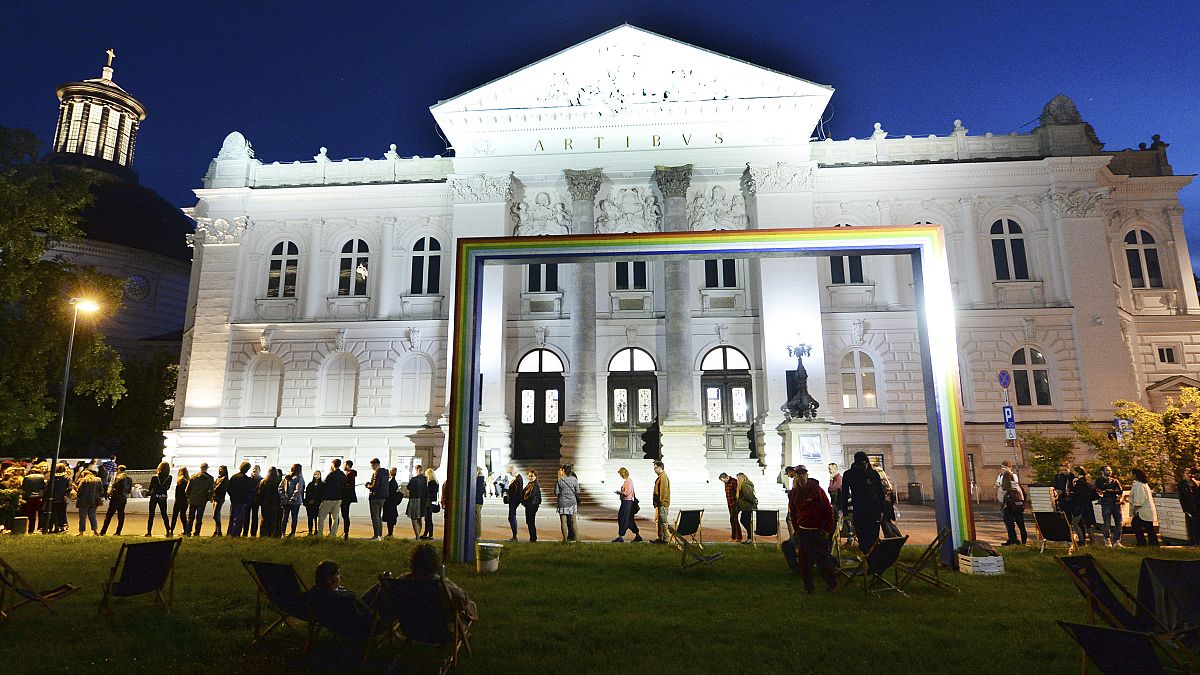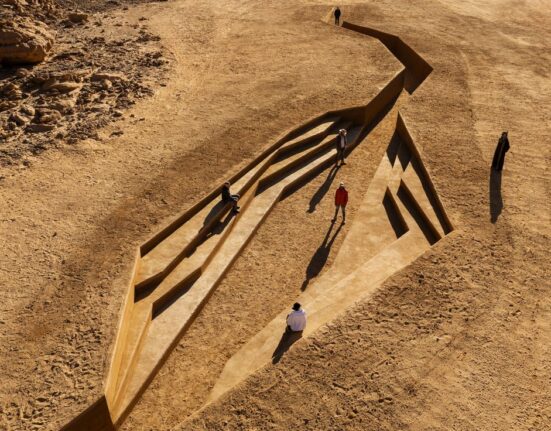Poland’s nationalist government dismantled artistic freedoms over eight years but Donald Tusk’s coalition can and should undo the damage, according to the Artistic Freedom Initiative.
In their eight years running the country, Poland’s populist government suppressed artistic expression and created a climate of fear for anyone challenging the status quo.
The Artistic Freedom Initiative (AFI), an organisation that helps persecuted artists around the world with pro bono legal representation, is calling on newly-inaugurated Prime Minister Donald Tusk to restore those freedoms.
“The role of art in democracy is very critical,” AFI Co-Executive Director Sanjay Sethi told Euronews Culture. “At its core, art is a medium of expression, and the freedom to express oneself is fundamental to democracy. By tackling this issue, (the Tusk government) would really send a message to the Polish people that upholding democratic norms is important.”
Tusk, a centrist and former President of the European Council, has vowed to restore democratic standards in Poland, which have been steadily eroded by his nationalist predecessors.
He faces multiple challenges, including unlocking frozen EU funding and managing the increasingly incendiary issue of migration. But the importance of supporting artists, Sethi says, shouldn’t be overlooked.
“I think Poland sent a first message in electing Tusk,” Sethi said. “It can send another message by showing why it’s important to create a pluralistic society where multiple viewpoints are allowed to emerge and the public is allowed to debate issues rather than shut one side down.”
A tight noose on free thinking
In a 2022 report co-authored by Sethi, titled “Cultural Control: Censorship and Suppression of the Arts in Poland,” AFI describes how Poland’s nationalist government, led by the Law and Justice Party (PiS), actively reshaped the country’s cultural landscape to advance its ultra-conservative ideals.
Although on paper, Poland ratified key treaties and conventions codifying freedom of expression, in reality the scope of protected speech drastically narrowed under PiS.
“What Law and Justice did is they politicised government institutions that were supposed to be apolitical,” Sethi said.
During PiS’s first year in power, Poland’s Foreign Ministry fired the directors of 13 of its 24 cultural institutions, replacing them with leaders aligned with their own political agenda.
PiS began exploiting an existing blasphemy law to quash creative expression that went against the country’s central Catholic religion, prosecuting dozens of artists. A defamation law was also used to silence government critics.
“This prevents anti-government opinion from gaining legitimacy and restricts how artists and innovators can express themselves,” the report states.
The blasphemy law was used most notably to suppress individuals in the LGBTQ+ community, many of whom were arrested for ‘insulting religion’ through their art.
Beyond their concrete actions, PiS also allowed ultra-conservative religious groups to report art they deemed offensive, leading to a culture of fear and self-censorship among artists.
“We (independent cultural producers) all have been crippled and cannot do things that have true meaning, true value, to educate society against xenophobia, racism and transphobia,” Polish visual artist Marta Frej told AFI in the report. “(PiS) has all the means—they have all the money, the media, all the resources. They have power, and we as culture workers, we are powerless. We don’t have the resources.”
Frej was charged with “offending religious beliefs” with her works, which she said resulted in job loss, financial stress and personal stress, even though the charges were ultimately dismissed.
With state-owned media transformed into instruments of propaganda, extremists within the population became emboldened, harassing and reporting artists for works that challenged the party line.
Restoring a climate where art can flourish
There can be no lasting improvement in Poland without a concerted effort from Tusk’s ruling coalition, according to AFI. One of the easiest things they can do is end the prosecution for blasphemy, Sethi says.
“The action-oriented changes – such as how to enforce the law – are perfectly within the purview of the executive branch, just like any government bureaucracy under the executive branch,” he said. “The harder part will be reforming the legislation to make sure this doesn’t happen again.”
The AFI report suggests potential safeguards that can be implemented, including legislative and policy changes that guarantee arts and cultural institutions are independently managed, so that no political party can politicise them in the future.
It also urges the government to repeal or reform the blasphemy law – a tall order for a coalition with a slim mandate.
“I think the bottom line is that without legal reform, if Law and Justice wins again, they can just dust off that blasphemy law and dust off the law governing arts and cultural activity and resume the same activity,” Sethi says.
“By reforming these laws, they’ll send the message that artistic spaces are not subject to politicisation, that the arts and culture should not be subject to any party’s ideology, and that artists who exercise their right to creative expression should be able to do so in a manner that they see fit.”







